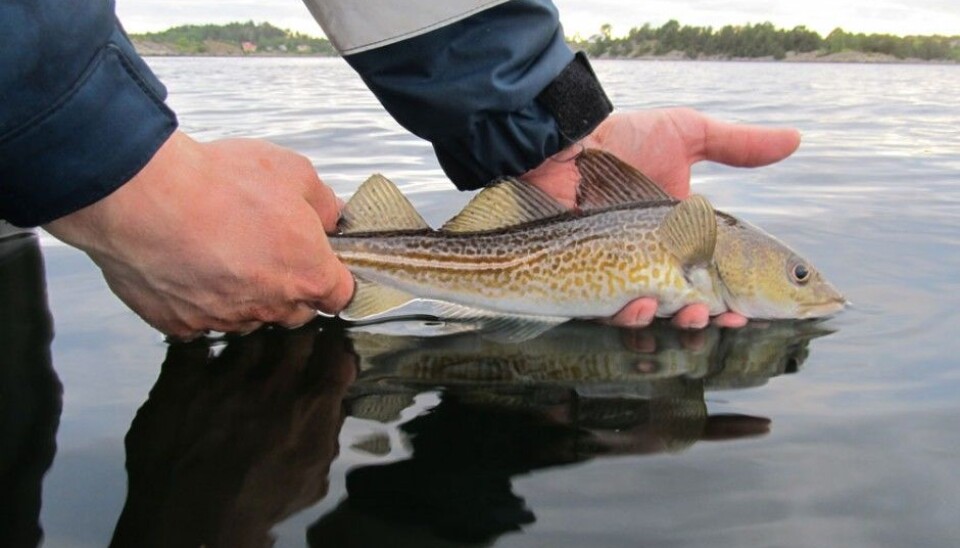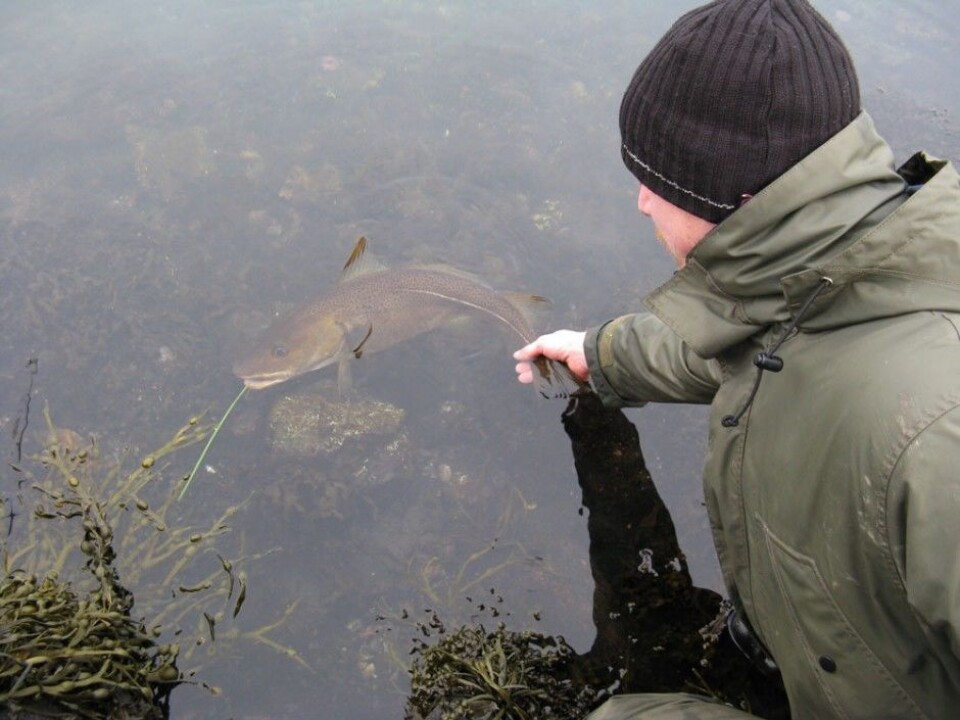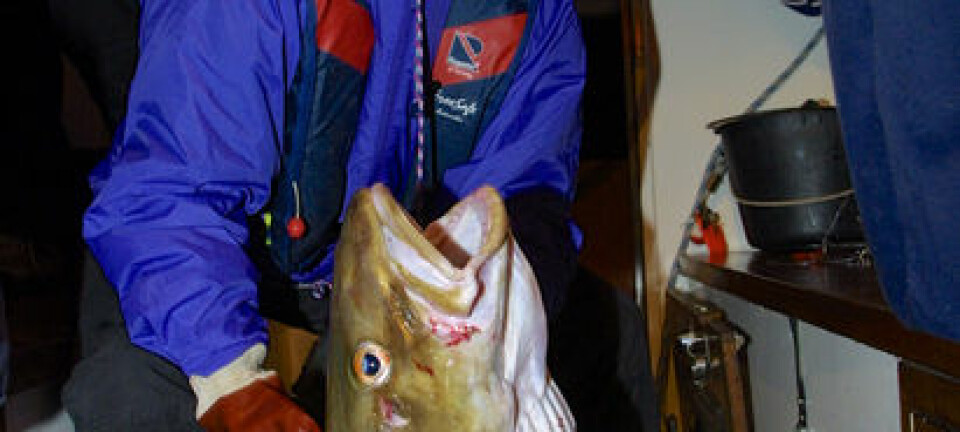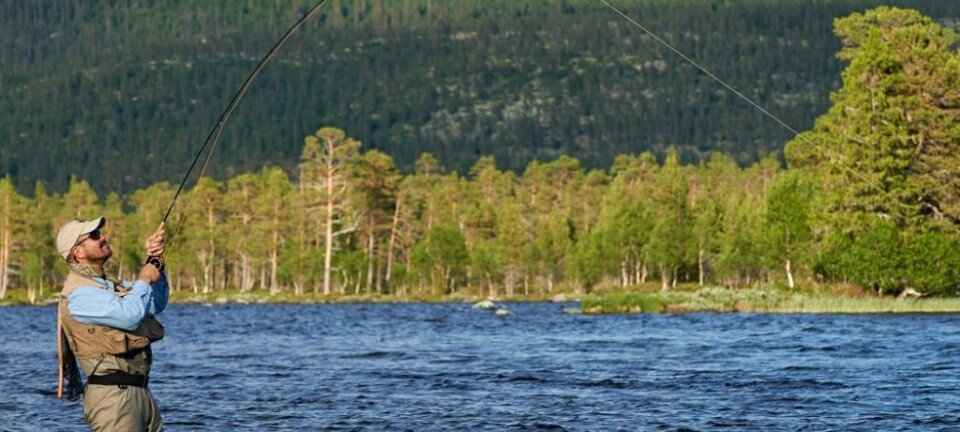This article was produced and financed by Institute of Marine Research

Atlantic cod recovers quickly after catch-and-release
Atlantic cod recover quickly if they get fished in shallow water, are handled properly and released immediately after capture.
Denne artikkelen er over ti år gammel og kan inneholde utdatert informasjon.
Little is known about the total catch and biomass for several fish stocks along the Norwegian coastline.
Only commercial fishers have to report their catches; but most likely recreational fishers and angling tourists also account for a large proportion of what is caught near the coast.
An earlier study showed that, in many cases, angling tourists in Norway release more than half of their catch. Just for cod, this proportion corresponds to over one million released individuals each year.
Has relevance for the stock
Post-release survival and a return to normal behaviour after catch-and-release has relevance for the stock size, says Keno Ferter; PhD candidate at the Institute of Marine Research and the University of Bergen.

"Catch-and-release does not have any value if the fish die. It is also important to consider how the fish is impacted by this event, and how it behaves back in the sea," he explains.
Temperature plays an important role for survival. If the water temperature is high, the likelihood for infections and stress increases. An afflicted and exhausted fish may change its behaviour, and thus be an easy target for predators searching for food.
First traps, then fishing rods
In summer 2012, Keno Ferter and his colleagues at the Institute of Marine Research investigated how cod tackle catch-and-release. The unique experimental setup had never been used in the sea before. Eighty cod were fished with traps, fitted with small acoustic tags in the belly and released.
The acoustic tags sent a signal with depth details and position of each individual fish every third minute.
"The tagging procedure can be stressful for the fish, which is why they got two weeks to recover from the surgery. If we had tagged the cod during the actual catch-and-release event, it would have been impossible to separate the tagging effects from any catch-and-release related impacts," Ferter explains.
Three weeks for nine cod
Two weeks after tagging, the research team started to fish for the tagged cod - this time with fishing rods.
Two people fished almost every day for three weeks in a row. During these weeks, they caught almost 700 cod of which nine had an implanted acoustic tag. All fish were caught in relatively shallow water.
The cod were caught and handled following best practice. This means that only single or small triple hooks were used, and the fish were released immediately after capture. The implanted acoustic tags made it possible to follow the cod’s behaviour after the release event; how active they were, and if the fish followed the same day rhythm as just before they were caught and released.
100 percent survival
All nine cod survived, but three of them showed some behavioural alterations. Two were less active during recovery, while one became hyperactive for some time. All three cod returned to their normal behaviour after about half a day.
"We found that cod can survive catch-and-release. Moreover, the fish get less stressed and afflicted if they are handled properly. It is important to point out that the cod in our experiment were caught in shallow water. The results could have been different if the cod had been caught in deeper water, says Ferter."
"However, we have good indications that, in some cases, cod even survive if brought up from deep water; even though the swimbladder bursts and the fish suffers other barotrauma issues. At the moment, we are having a closer look at the survival of cod caught in deeper water".
Need for guidelines
To increase survival chances it is important to develop and implement guidelines that explain how to treat captured fish on land, Ferter advises.
"Some immediate tips to anglers are to avoid using large triple hooks; these can lead to foul hooking and severe injuries. Use wet hands when touching the fish and avoid long air exposure. If you catch a lot of fish under the minimum landing size, it can be smart to change the fishing spot or use a different type of lure," he recommends.
































